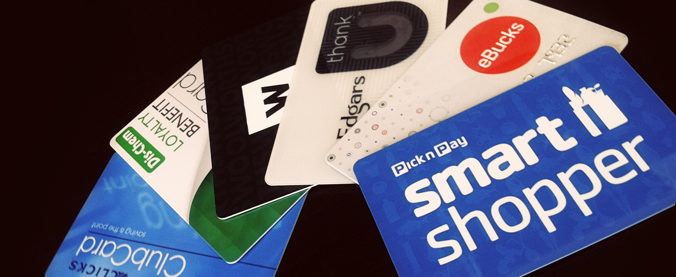Humans are fascinating. The reasons why we behave in certain ways are sometimes obvious, but more often than not, they aren’t always clear to us. One of the best examples of this in South Africa currently is the use of rewards programmes to influence certain types of our behaviour.
There are rewards programmes that encourage us to spend on credit cards, or keep us healthier, get us driving better, and to pay our rent on time and become better tenants. In fact, if you ask most South Africans to open up their wallets, no doubt you’ll find quite a few rewards programmes cards stuffed in there. According to research company AC Nielsen, almost two-thirds of the South African population belongs to more than one of these programmes.
We were interested in the personal reasons behind the popularity of this concept, so we chatted to a number of South African consumers to ask them why they like being part of rewards programmes. Here are five reasons they gave:
You feel better about spending
There are some expenses that you can’t get out of in life, like buying groceries or paying rent. So, rewards programmes that are linked to these essentials make us feel better about spending, as we know we will get something back in the end. “I fly to Cape Town with Avios points scored on my Pick n Pay Smart Shopper card,” says writer Kate Johns, “this makes the weekly shop/grind that much more bearable.” PR professional Sarah Herr agrees, saying “You’re able to get rewarded for things you’re going to be doing anyway – bonus!”.
Similarly, the Flow App, which is free to download, aims to reward tenants for doing something they would do anyway, like simply paying rent on time and being better tenants. As tenants improve their Flow level, they get bigger discounts on prepaid electricity, data and exclusive deals with a selection of partners in the Flow marketplace. This has the effect of reinforcing positive behaviour which benefits the landlords too by having their investment taken care of. It’s a win-win situation.
Affirmation
Remember how at school you got given medals or certificates for jobs well done? Well, that was all about acknowledgement, but as adults, very few of us get the same kind of feedback. Rewards programmes are one way of providing that affirmation we seek. Marketer Leigh Carmichael says she loves Discovery’s Vitality programme: “I’m amazed at what I’ll do for a free coffee or a Dis-Chem voucher! I think it’s like an acknowledgement that I’m doing something right.”
Launched in 1997, today Vitality has more than 500 000 members, and has become an intrinsic part of many South Africans’ lives. It rewards certain types of behaviour, like exercising, or choosing healthy food items, in order to lower the risk profile of the individuals it covers on medical aid.
Healthy competition
Another aspect of certain rewards offerings is that you can compete against your peers when it comes to exercise, with all of your weekly goals listed for all to see, versus the actual amount of workouts you completed. While exercise can be a solitary pastime for many people, this sort of quick and easy comparison can quickly get us dusting off our takkies. “That friends’ leaderboard really motivates me to exercise,” says accountant Caryn Trott, “as there’s nothing like competition between friends.”
They make us more mindful
Life is busy, so it’s hard to keep track of our habits. Rewards programmes offer us a way to be more analytical about our behaviour, and therefore more considered. eBucks Rewards is all about rewarding FNB customers for how they bank. Focus is on adding value for people who bank with FNB by enabling them to save money and do more by earning and spending their eBucks. The amount of rewards they enjoy all depends on their banking behaviour – the more mindful a consumer is about using the way they bank, the more they are rewarded.
Freebie culture which drives positive behaviour change
Humans love anything that appears to be free. It doesn’t even have to be a large item to instil a feeling of positivity towards a brand. A cupcake, a cup of coffee, or even a free sachet of washing powder – we’re highly sensitive to rewards, no matter which income bracket we sit in. Loyalty or rewards programmes satisfy this desire in the most basic way – and at the same time they drive positive behaviour change. “You can’t beat the satisfaction that you get from wearing that scarf you bought worth R200, with an eBucks reward from your bank,” says writer and business owner Belinda Mountain.
Tenants who pay their rent on time and ensure they’re being good tenants get rewarded for this positive behaviour in numerous ways within the Flow app – another type of reward for positive behaviour change.
Freebies and rewards bring us pleasure, and as humans, we are the eternal pleasure seekers. It’s sometimes as simple as that.






